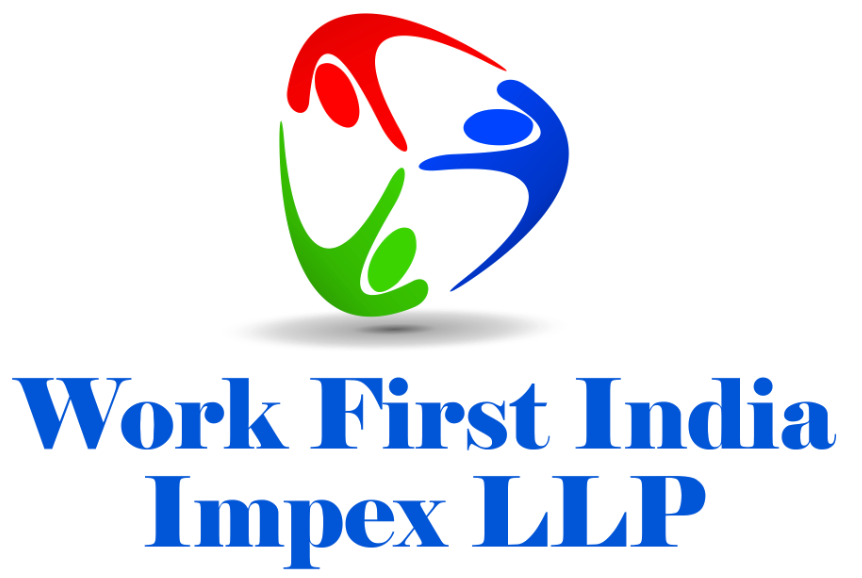Online IKCEPA Certificate Registration
Online IKCEPA Certificate Registration - Process, Documents and Fees
IKCEPA stands for the India-Korea Comprehensive Economic Partnership Agreement, which aims to improve trade relations and business in both countries. There are several advantages of IKCEPA Certificate registration, as this agreement includes liberalized market access to the South Korean market for the Indian service industry, especially for information technology, engineering, financial, and legal services. It’s also important to understand that IKCEPA plays a key role in helping businesses access international markets by improving trade relations and cooperation.
To qualify for the preferential trade under IKCEPA, the exporter must secure a Certificate of Origin (COO). This certificate satisfies the rule of origin required for exported products under the free trade agreement. It plays an important role, as it is essential for companies that wish to obtain tariff exemptions and preferred treatment while complying with trade regulations.
The process of acquiring the IKCEPA Certificate of Origin starts with registration by exporters on the relevant online platforms. The registration process includes a commercial invoice, bill of lading, and a description of the origin of the product being imported. This certification process helps to target only those products that qualify for such benefits, helping to maintain fair trade.
Below is the detailed process on how to apply and what you need for registration, as well as tips and recommendations to facilitate the registration process for IKCEPA. To increase the efficiency of IKCEPA and take advantage of the existing opportunity in South Korea, the importer and exporter must go through a structured process.
Table of Content
- What is India-Korea Comprehensive Economic Partnership Agreement (IKCEPA)?
- Benefits of IKCEPA Certificate
- Process for IKCEPA Registration
- Documents Required for IKCEPA Registration
- Eligibility for IKCEPA Registration
- Fees for IKCEPA Registration
- Other Free Trade Agreements
- Conclusion
- Frequently Asked Questions (FAQs)

What is India-Korea Comprehensive Economic Partnership Agreement (IKCEPA)?
IKCEPA refers to the India-Korea Comprehensive Economic Partnership Agreement, which is a free trade agreement of South Korea signed in 2009, and its main intention is to raise the relationship between the both countries. Trade liberalization is the process that seeks to remove obstacles to export and import and boost the trade and investment encouragement between two countries. The IKCEPA Agreement contains Intellectual Property Rights, Customs Affairs, and Dispute Settlement, which boosts the efficiency of business processes. It has brought positive impacts to many economic sectors, such as automobiles, electronic industries/IT, Textiles, chemicals, etc. The policy tends to be reviewed periodically to better optimise trade relations and counter new economic risks for the parties’ mutually beneficial development of bilateral trade and investment.
Benefits of IKCEPA Certificate
Here is a list of benefits of obtaining the IKCEPA Certificate:
- Reduction of Tariffs – The IKCEPA eliminates or minimizes customs duties on most products, making Indian exports more competitive and affordable in the South Korean market.
- Increased Foreign Direct Investment (FDI) – The agreement facilitates liberalization of FDI, allowing businesses to hold greater investments in each other’s markets and fostering deeper bilateral cooperation.
- Fair Competition – It promotes transparency and fairness in trade and investment by providing a clear regulatory framework within the Free Trade Area. Boosting Manufacturing and Services – The partnership enhances collaboration in the manufacturing and services sectors, opening up more trade and investment avenues for businesses in both countries.
- Access to New Markets – Indian exporters, particularly in IT, engineering, and financial services, gain better access to South Korea’s markets, benefiting significantly from improved service sector opportunities.
IKCEPA Registration Process
The procedure of IKCEPA registration involves several steps to ensure eligibility for tariff and trade benefits under the agreement. Here’s a step-by-step process for obtaining the IKCEPA Certificate of Origin:
Step 1: Access the Online Portal
Visit the DGFT Certificate of Origin portal at https://coo.dgft.gov.in to begin the IKCEPA Certificate registration process.
Step 2: Filling Out the Application
Log in using your IEC credentials and accurately fill in the Certificate of Origin (COO) application with all required details.
Step 3: Document Submission
Upload necessary documents including a valid IEC, proof of manufacturing or production, and other supporting documents as specified by DGFT.
Step 4: Review and Submit
Verify all application details and documents for accuracy before submitting the application through the online system.
Step 5: Certificate Issuance
Upon approval, the Certificate of Origin will be issued electronically and sent via email. It
should be presented at customs during exports to South Korea.
Documents required for IKCEPA Registration
To register for the IKCEPA Certificate of Origin, exporters must provide key documentation that validates the origin and eligibility of goods. Here’s a list of essential documents required for the process:
• Import Export Code (IEC)
• Shipping Bills
• Bill of Lading or Airway Bill
• Invoice Copy
• Proof of Origin
• Additional Supporting Documents (if required)
• Digital Signature Certificate (DSC)
Eligibility for IKCEPA Registration
To be eligible for IKCEPA Certificate registration, exporters must meet the following criteria to ensure compliance with agreement rules:
Valid Import Export Code (IEC) – Exporters must hold a valid IEC issued by the Directorate General of Foreign Trade (DGFT).
Digital Signature Certificate (DSC) – A Class II or Class III DSC is mandatory, and it must be linked to the registered IEC.
Updated Contact Information – The contact email and mobile number associated with the DGFT profile should be up to date for authentication and communication purposes.
Manufacturing Proof – Exporters must submit documentation proving that the products are wholly produced or manufactured in India.
IKCEPA Registration Fees
The total cost for IKCEPA registration is ₹6,235, which includes the government fee, registration, application, and professional charges. Here is the detailed fee structure:
| Particulars | Fees |
|---|---|
| Government Fee | ₹ 736 |
| Application Fee | ₹ 2000 |
| One time registration fee | ₹ 500 |
| Professional fee | ₹ 2,999 |
| Total Fee | ₹ 6235 Only |
Note : This certificate is generally valid for one year from the date of issuance. Exporters must renew the certificate annually to continue availing benefits under
the IKCEPA agreement.
Other Free Trade AGREEMENT |
India has enhanced its market access commitments for neighbouring service providers. These commitments provide companies with an opportunity to build market expertise and grow by international expansion. Under Free or Preferential Trade Agreement there are multiple options where certificate of origin can be generated from India for import benefits to importing companies:-
ICPTA – India Chile Preferential Trade Agreement
SAFTA – South Asia Free Trade Agreement
SAPTA – SAARC Preferential Trade Agreement
IKCEPA – India Korea Comprehensive Economic Partnership Agreement
IJCEPA – India Japan Comprehensive Economic Partnership Agreements AIFTA-ASEAN India Free Trade Agreement
ISFTA – India Sri Lanka Free Trade Agreement
APTA-Asia Pacific Trade Agreement
GSP-Generalized System of Preferences
GSTP – Global System of Trade Preferences
IMCECA – India Malaysia Comprehensive Economic Cooperation Agreement
ISCECA – India Singapore Comprehensive Economic Cooperation Agreement
Conclusion
The IKCEPA Certificate is a very important tool for Indian exporters to use to claim the preferential tariffs and trade preferences offered under the India-Korea Comprehensive Economic Partnership Agreement. Through this certificate, South Korea is assured that the exported goods are authentic, thus promoting trade between the two countries. The process of registration can be done by filling out an online form on the DGFT portal and submitting the documents that fulfill all the criteria of eligibility. That process can be handled much more effectively with Professional Utilities, and that is how business entities get the best out of the given agreement. The IKCEPA Certificate enables the exporter to become more competitive and therefore open doors to the markets in South Korea, leading to the development of the main sectors, including manufacturing and services.
Why Professional Utilities?
At Professional Utilities, we leverage our industry knowledge and expertise to help businesses navigate complex regulations, minimize risks, and optimize operations for maximum efficiency and profitability.
- One Stop Corporate Solution
- Free Expert Assistance
- PAN India Services
- Google Verified Business
- Dedicated Support Staff
- Money-Back Guarantee
TRUSTED BY |






Frequently Asked Questions (FAQs)
India Korea Comprehensive Economic Partnership Agreement (IKCEPA) is a trade pact signed on August 7, 2009, and came into effect on January 1, 2010.
It is required for claiming tariff benefits under IKCEPA in South Korea and facilitates smoother customs clearance while complying with trade regulations.
The certificate is valid for one year from the date of issuance, provided the goods meet the agreement’s origin rules.
No, the certificate must be applied for before shipment to enable customs clearance and claim tariff benefits.
It certifies that the goods meet the origin criteria under IKCEPA, allowing exporters to claim preferential treatment and reduced tariffs.
No, only Indian exporters with a valid IEC and proof of manufacturing in India can apply, as the agreement is exclusive to trade between India and South Korea.
Renewal involves resubmitting documents on the DGFT portal, confirming compliance with rules of origin, and paying the renewal fee.
You can revise and correct the application based on the reasons for rejection, then resubmit with the proper documentation.
Industries Served by Professional Utilities
- Hotel
- Railways
- Liquor
- Health & Medical
- Food Processing
- Dangerous/ Haz. Goods
- Tea & Coffee
- Capital Goods
- Recycling
- Rubber
- NGOS
- Silk
- Handloom
- IT & BPM
- Steel
- Automobile
- Tobacco
- Constructions
- Apparels
- Footwear
- Furniture
- Gems and Jewellery
- Tourism & Hospitality
- Consumer
- Electronics
- Chemicals
- Telecom
- Oils & Gas
